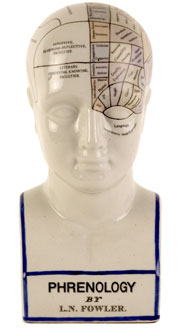Anthropology Advising
Anthropology as a Major - General Advising
The field of anthropology includes four sub-disciplines: archaeology, biological anthropology (physical), cultural anthropology (ethnology), and linguistics. All students in anthropology are expected to take some courses in each of the sub-disciplines. The earlier the student completes these courses, the more likely the prerequisites for upper division courses will be met.
While anthropology students should take some courses in each of the sub-disciplines, they must ultimately choose one as an emphasis. While this emphasis is usually decided once the student reaches the university setting, a good foundation of courses is possible at EvCC. Please meet with an anthropology advisor to best determine the courses that will form this educational foundation.
Typically, students pursue their study at the bachelor’s degree level, and then at the master’s level. You can enjoy the benefits of smaller classes (and lower tuition) by beginning your college study at a community college and then transferring to a university.
At EvCC, students interested in anthropology are encouraged to pursue the Associate in Arts and Sciences - Option II. This degree meets statewide guidelines for smooth transfer to most of Washington's colleges and universities, and several in Oregon. With this degree, you will have completed most or all of the lower-division, general education requirements typically required within a bachelor's degree. The complete description of this degree program is provided in the Associate in Arts and Sciences Direct Transfer Guide. A checklist for an anthropology emphasis is provided on the fourth page of this guide.
Another degree option that students contemplating biological anthropology or archaeology should consider is the Associate of Science. This degree enables science majors to complete most or all of their science and math prerequisites while at the community college, while taking fewer social science and humanities courses. The structure of the Associate of Science provides excellent preparation for biological anthropology and archaeology students. The student in anthropology who looks at this option can still develop a solid foundation of courses in the social sciences and humanities if the chosen electives are carefully selected. See an advisor for guidance concerning this degree option.
(Do not follow the curriculum guide for biological sciences; there are significant differences between biological sciences and biological anthropology and archaeology requirements.)
We encourage you to review the catalogs and anthropology departments of a variety of colleges and universities. In reviewing the catalogs you will discover if special courses should be taken in the first and second year, in order to prepare for entering the major as a junior. In many cases, first and second-year courses that may be prerequisite for the major may be taken within the AAS-Option II degree plan. Please take the time to meet with Cynthia Clarke, our faculty advisor listed in the right bar, to map out a plan that is best for you.

